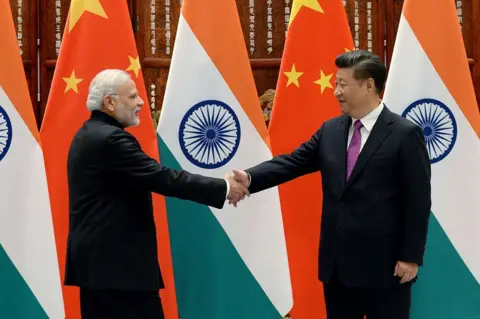This is a time for us to engage America, manage China, cultivate Europe, reassure Russia, bring Japan into play, draw neighbours in, extend the neighbourhood and expand traditional constituencies of support, Indian Foreign Minister S Jaishankar wrote in his 2020 book The India Way: Strategies for an Uncertain World.
For over a decade, India has styled itself as a key node in a new multipolar order: one foot in Washington, another in Moscow, and a wary eye on Beijing.
However, the scaffolding is buckling. Donald Trump's America has shifted from a supportive ally to a critical voice, accusing India of undermining Western sanctions by purchasing discounted oil from Russia. Following Trump's public rebuke and increased tariffs, Delhi finds itself reassessing its strategic relations.
As Prime Minister Narendra Modi prepares to meet Xi Jinping in Beijing, this meeting signals not only a thaw in diplomatic relations but a pragmatic approach amidst rising challenges. India's contradictory position is apparent—being a key member of the US-led Indo-Pacific Quad, while simultaneously engaging in the China and Russia-led Shanghai Cooperation Organisation (SCO).
Analysts emphasize that India's current balancing act stems from a desire for strategic autonomy, allowing it leverage rather than surrendering to any single power's influence.
India's global ambitions outpace its current capabilities, with its economy at $4 trillion compared to China's $18 trillion and America's $30 trillion. Despite these economic challenges and military dependence on imports, India remains committed to maintaining robust relationships with both the US and Russia.
While India's foreign policy has faced setbacks, history shows resilience in maintaining diplomatic ties despite adversities. The key question remains not if relations will recover, but in what form they will evolve as global alliances shift.
In conclusion, India's path forward hinges on successfully navigating these complex diplomatic landscapes, absorbing pressures from major powers, and cultivating relationships that will allow it to retain autonomy in an increasingly polarized world.




















